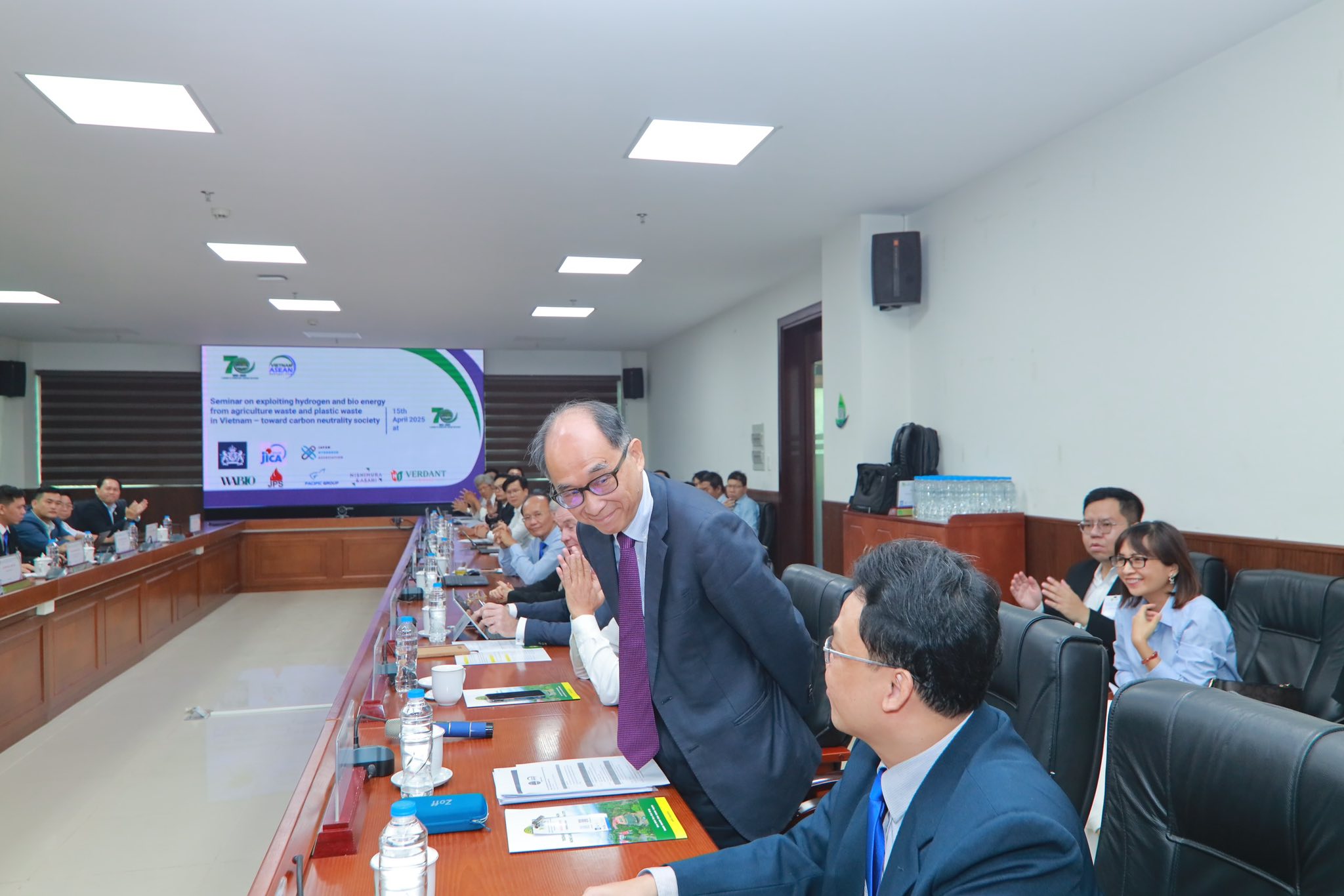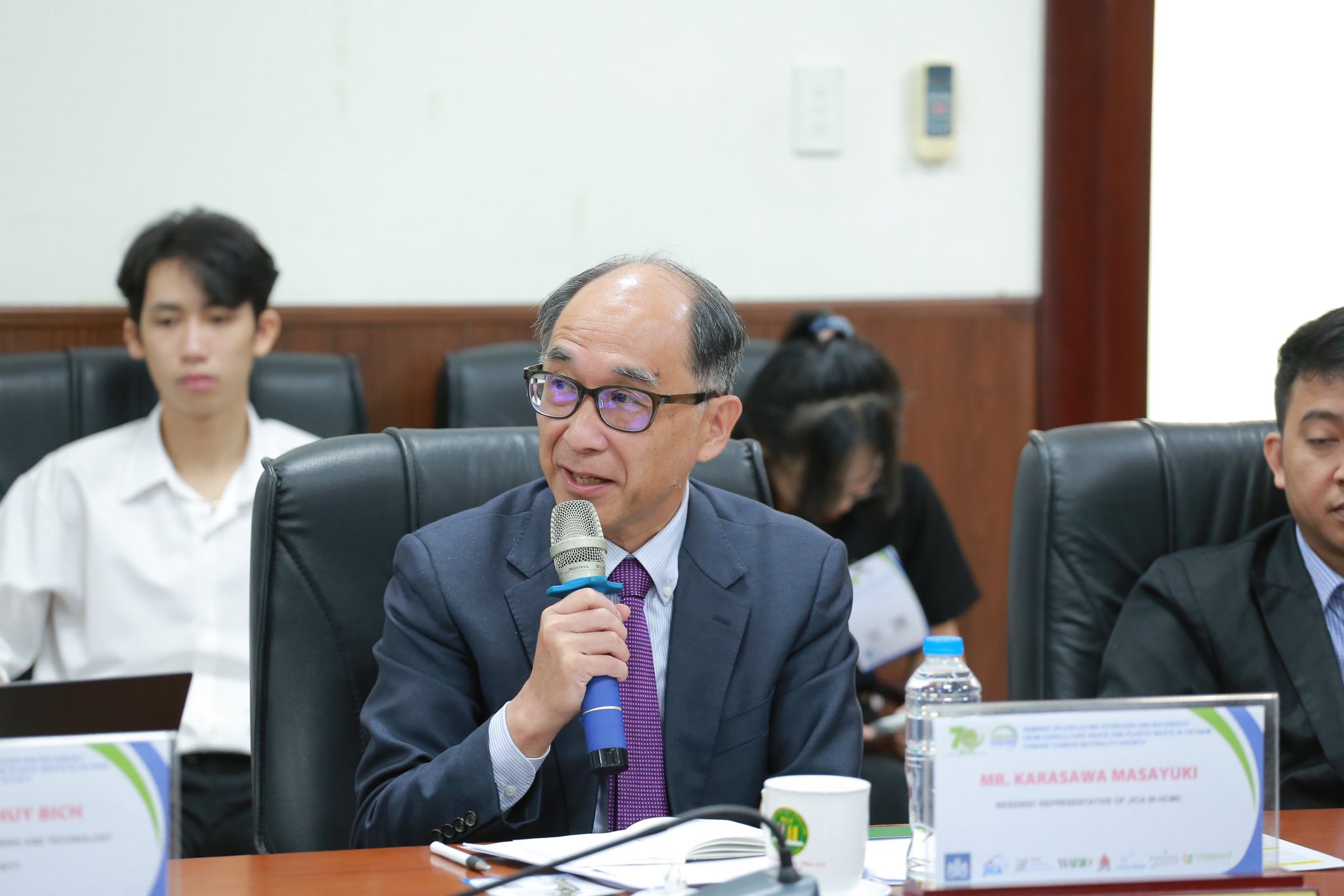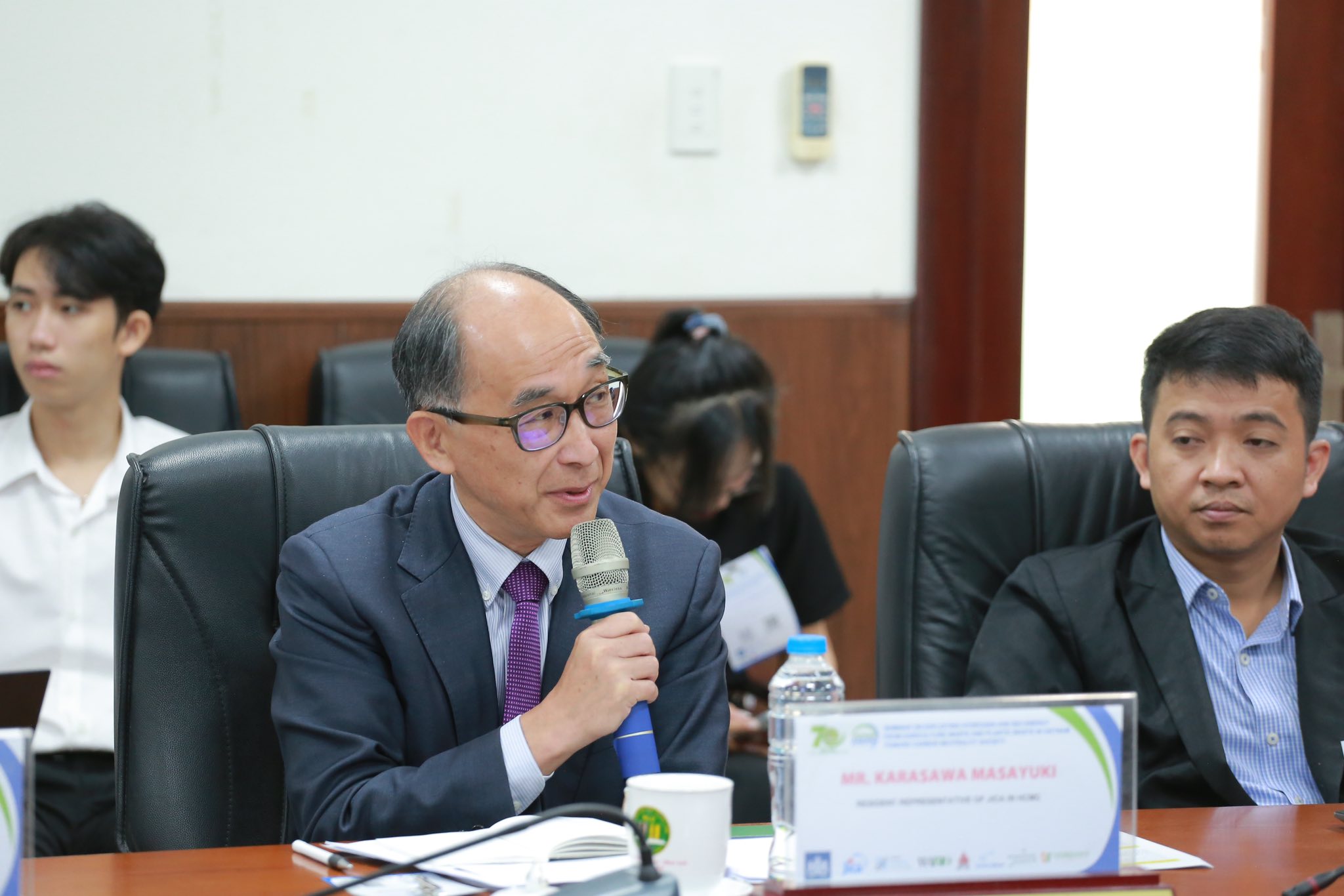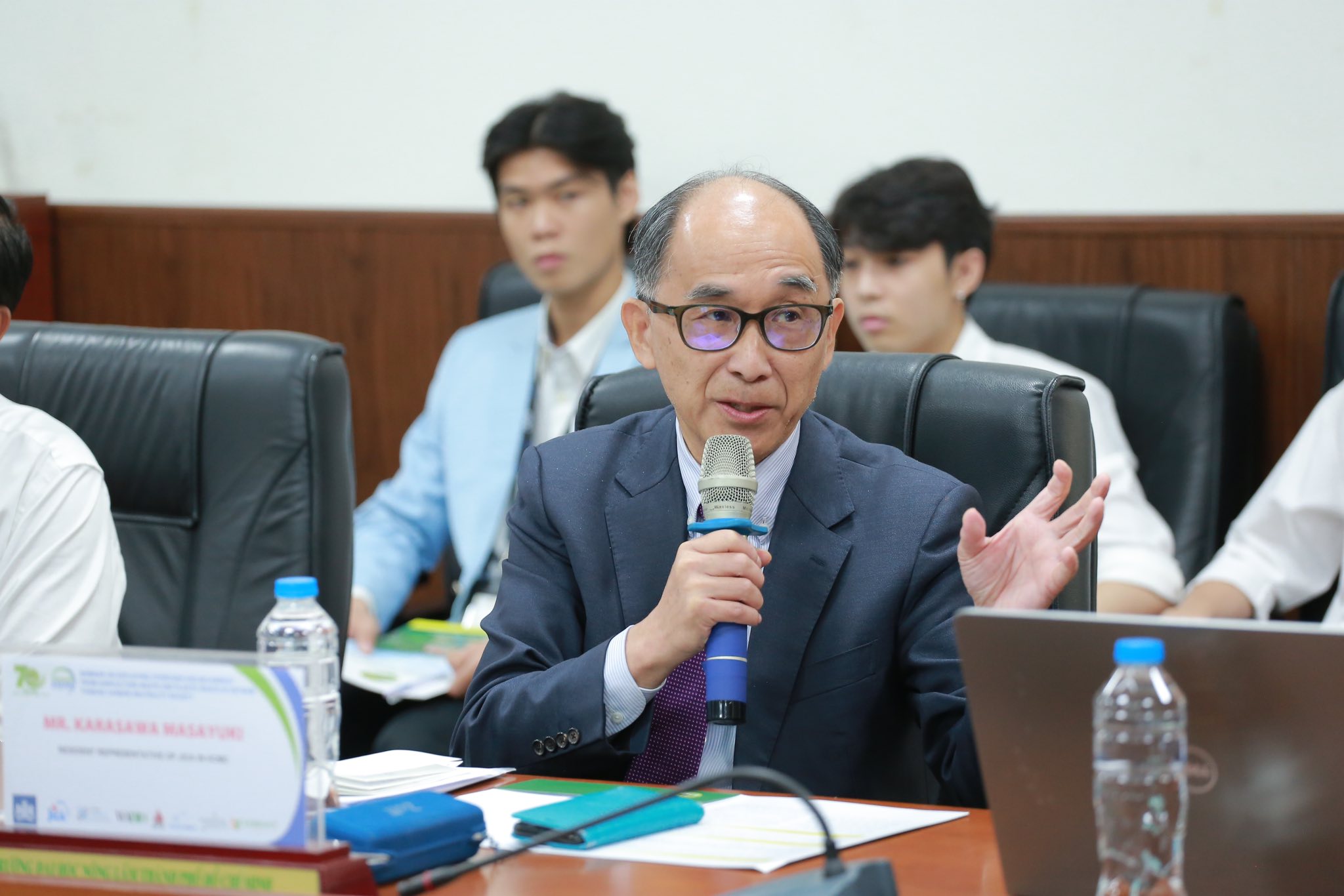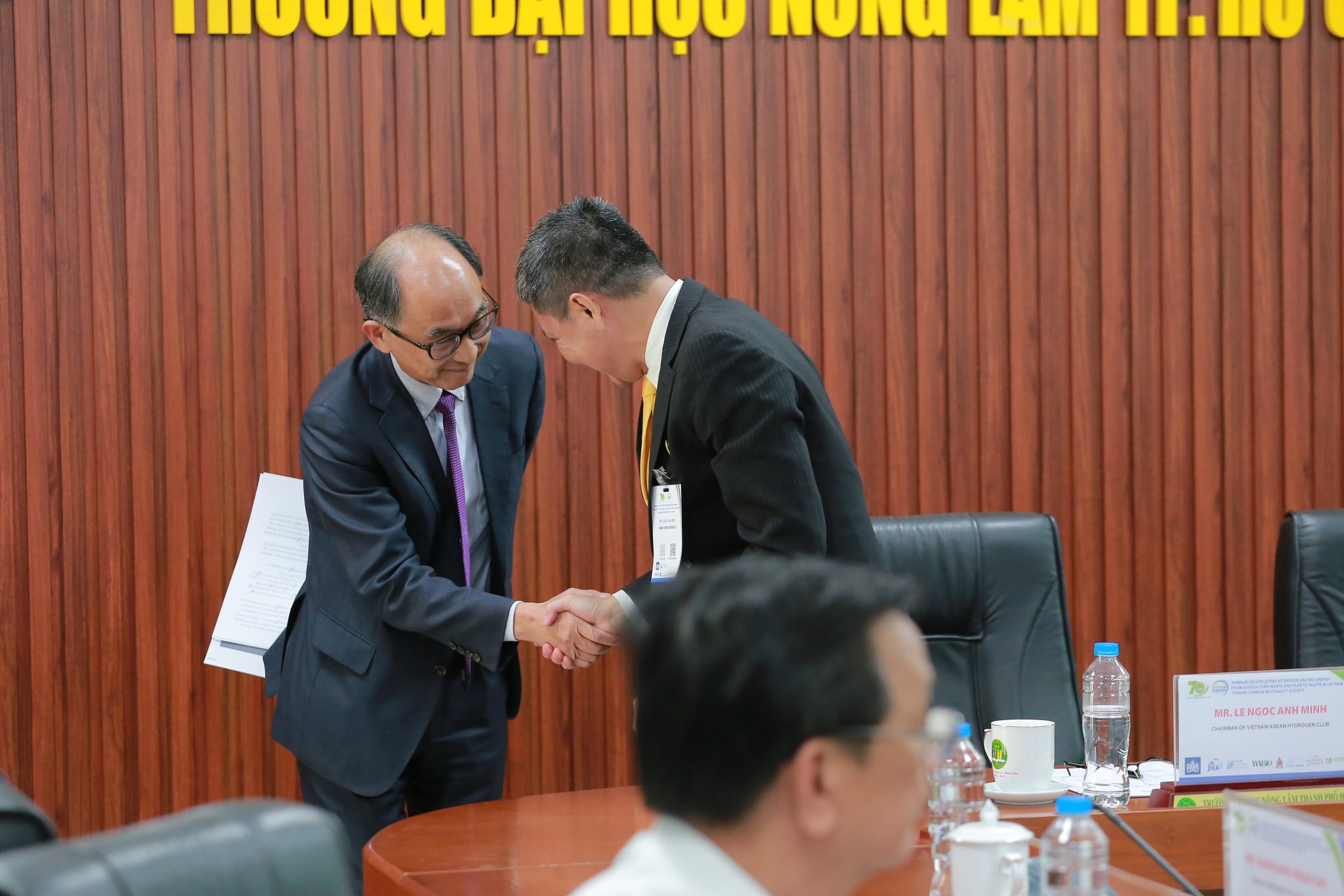SEH: Japanese Government/JICA Support for WtE
VAHC would like to introduce the summary of presentation of Mr. Masayuki Karasawa, Resident Representative of JICA Ho Chi Minh City at our Seminar on Exploiting hydrogen and biogas from agriculture and plastic waste in Vietnam - toward a carbon neutral society (SEH) on April 15 2025 at Nong Lam University HCMC
1. History of Waste Management in Japan
-
Post-war to 1950s: Focused on public health improvement with basic waste collection and disposal.
-
1960s-1980s: Rapid economic growth led to pollution issues; incineration facilities and waste laws (e.g., Waste Management Act, 1970) were introduced.
-
1990s-2000s: Shift toward recycling and decarbonization, with laws like the Containers and Packaging Recycling Act (1995) and the Basic Act for a Sound Material-Cycle Society (2000).
-
Key Technologies: Stoker-type, fluidized-bed, and gasification melting furnaces were developed, reducing landfill use and improving energy recovery.
2. Japanese WtE Technology Transfer Overseas
-
Advantages: Hygienic waste reduction, energy generation, and landfill diversion. Challenges include high costs and emission control.
-
Case Studies:
-
Saga City: Stoker-type plant (300 tons/day, 21% efficiency) supplies electricity and CO₂ for algae cultivation.
-
Hatsukaichi: Fluidized-bed plant (150 tons/day, 22% efficiency) supplies heat to a gas plant.
-
Kitakyushu: Gasification melting plant (720 tons/day, 23% efficiency).
-
-
Global Projects: Supported PPP-based WtE projects in Indonesia (e.g., Legok Nangka) and Vietnam.
3. Waste Management in Vietnam and JICA’s Support
-
Challenges:
-
67,000 tons/day of waste; 55% dumped unsanitarily.
-
Low recycling rates and marine pollution from plastics.
-
-
Policies: 2020 Environmental Law mandates waste sorting by 2025 and targets 25% incineration by 2025.
-
JICA Projects:
-
Bac Ninh Province: Stoker-type plant (500 tons/day, 11.6 MW) with JCM subsidy.
-
Binh Duong Province: Co-financed composting/WtE plant (200 tons/day, 5 MW) with ADB.
-
-
Barriers: Low feed-in tariffs ($0.10/kWh) and lack of bankable PPP models hinder private investment.
Conclusion
Japan’s WtE expertise aids Vietnam in tackling waste crises through technology transfer, policy support, and pilot projects, though financial and institutional gaps remain.
Presentation Link: Full PDF Here
